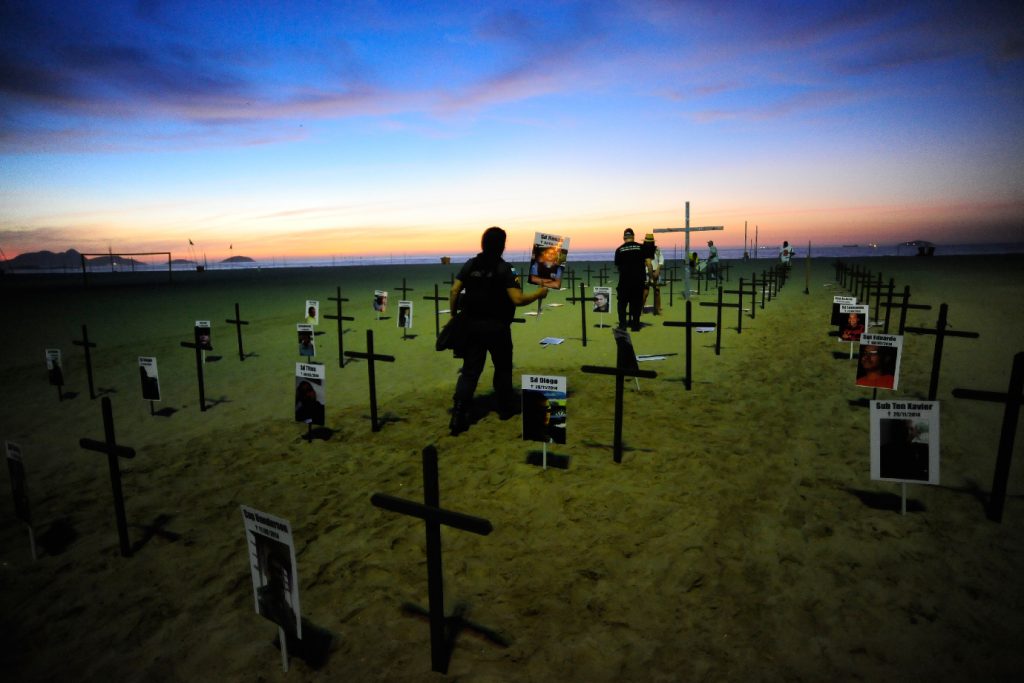RIO DE JANEIRO, BRAZIL – The federal government launched, on Thursday, August 29th, a pilot project of joint actions with states and municipalities to confront violent crimes. The activities, such as reinforcement of policing, will be developed in five cities, one in each region of the country:
Ananindeua (Pará, North)
Paulista (Pernambuco, Northeast)
Goiânia (Goiás, Midwest)
Cariacica (Espírito Santo, Southeast)
São José dos Pinhais (Paraná, South)

Named “Forward, Brazil” (Em Frente, Brasil), the project was presented at a ceremony at the Planalto Palace with President Jair Bolsonaro and the Minister of Justice and Public Security, Sérgio Moro.
In an ordinance published last week in the “Official Gazette of the Union”, Minister Sérgio Moro had already authorized sending the National Security Force to the five cities named in the government’s pilot project.
Security Must Improve
The president declared that public security is one of the problems that most “afflicts” Brazilians and that it is necessary to seek a “solution” to the problems in the area.
According to the president, the recovery of the economy helps in the fight against violence. Bolsonaro also said that the conservative agenda is “essential” and the “anchor” for society.
According to the Ministry of Justice, the five municipalities of the pilot project were chosen based on the average number of homicides that occurred there between 2015 and 2017, which are the most violent in Brazil. The state’s fiscal situation also weighed in on choices.
The pilot project will focus on the repression of murders, but the government expects to reduce rates of other crimes considered violent: femicides, rapes, extortion through kidnapping, latrocínio (armed robbery that resulted in murder), armed robbery, robbery without a gun, kidnapping, and bodily injury.
Moro noted that in the past, the federal government acted “reactively” in the fight against crime and said that the concept of the project now is to act preventively.
First phase
The pilot project foresees the joint work of federal, state, and municipal security forces in the selected cities.

The first phase includes the strengthening of policing. The government has identified that it is necessary to improve the reaction of the security forces in order to reduce the rates of violent crimes.
Second phase
The second phase of the pilot project foresees the creation of public policies adapted to the reality of each municipality to complement the intended reduction of violence.
Based on the studies that will be carried out in the five municipalities, the government intends to identify risk and vulnerability factors that result in the high rates of violence in the regions, to prepare actions in the social area for the respective communities.
“We need to remove violent criminals from circulation, but we also have to deal with the causes of crime, eventually related to urban degradation and abandonment. We need to combine solid security policies with policies of a different nature,” Minister Sérgio Moro said at the ceremony.

